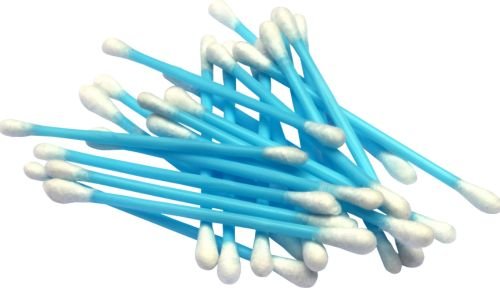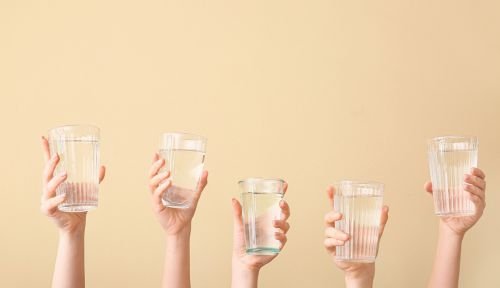You may believe some health myths that have little to do with reality. Many of us still believe in the myth that body hygiene is a daily shower or hair wash. But is this true? Is it really necessary to maintain health? Are there other ways that are more effective and safer for our health?1
Many of the health myths that many of us believe are believed to be true. But in this article, using research and expert advice, we'll debunk some of these myths and explain why they're not true.

1. Myth: Showering every day is necessary
True: While there are many reasons why you might want to shower every day, there is no health reason to do it every day. In fact, showering too often can have a negative effect on the skin. Normal healthy skin has a layer of natural oils and good bacteria that protect the skin from dryness and germs. Washing the body too often with soap and water, especially hot water, can strip the skin of the skin, leaving it dry, itchy, irritated or cracked and vulnerable to infection or an allergic reaction.
Scientists say that taking a daily shower can even harm the skin. Washing your skin every day can dry out your skin, damage its natural protective layer and lead to various skin problems such as dryness, redness, itching and even eczema. Therefore, if you want to keep your skin healthy, maybe you should think about how often you bathe and choose less aggressive skin care methods.
2. Myth: You should wash your hair every day
True: Do you also think that hair should be washed daily to keep it healthy and clean? However, hair care experts say that washing your hair every day can be harmful. Hair is natural and has its own natural oil that helps nourish and moisturize it. Daily washing can strip away these natural oils, leaving your hair dry, brittle, and even prone to balding. So if you want to keep your hair healthy, maybe you should review your hair washing routine and learn how to properly care for it.
How often you should wash your hair really depends on many factors, such as your hair type, activity level, and how oily your scalp is.

3. Myth: The best way to get rid of pimples is to squeeze them
True: No matter how tempting or satisfying it may be to pop a pimple, you shouldn't do it. While it may seem like a "quick fix," popping pimples can lead to more breakouts, as well as more breakouts and scarring.
Dermatologists warn that it can be very harmful to your skin. Pressure from acne can cause skin damage, redness, inflammation and even scarring. Also, pressure on the pimples can spread the infection and cause even more pimples. Therefore, if you want to keep your skin healthy and clear, it is better to consult a dermatologist and find the right acne treatment.

Myth 4: Earpicks are a safe way to remove earwax
True: Have you ever been told that ear picks are a safe way to clean earwax? However, otolaryngologists (ear, nose and throat specialists) warn that it can be dangerous for your ears. Earpicks can damage the ear drum, cause inflammation and even cause deafness. In addition, earwax is natural and important for ear protection. It helps protect the ears from dust, dirt, bacteria and other harmful substances. Therefore, if you think you have a problem with earwax, it is better to consult a professional rather than trying to remove it yourself.
5. Myth: Deodorants and antiperspirants cause breast cancer
True: Earlier in the 2000s, several studies analyzed the link between antiperspirant or deodorant and breast cancer. The authors of these studies and other researchers theorized that the chemicals in these products, including aluminum and parabens, are absorbed by the skin, especially after shaving, and deposited in the lymph nodes.
However, this is a myth. This myth arose because some antiperspirants and deodorants may contain aluminum ingredients that can penetrate the skin and cause estrogenic effects, which could theoretically contribute to the development of breast cancer. However, research does not support this theory.
Many scientific studies conducted in the past years have shown that there is no connection between the use of deodorants and antiperspirants and the occurrence of breast cancer. These studies have been conducted using a variety of methods and in different populations, so their results are reliable. This myth may have arisen due to a misunderstanding or the dissemination of incorrect information in the public space.
So, don't worry about using deodorants or antiperspirants. They are safe and do not cause breast cancer. It is only important to check your breasts regularly and see your doctor in time if you notice any changes.
6. Myth: The 5 Second Rule
True: If you've ever accidentally dropped a piece of food on the floor, you've probably heard someone yell "5 second rule!". This unofficial rule states that food that has been on the floor for less than five seconds has not yet had time to accumulate germs or bacteria and is still clean and safe to eat.
This is another health myth that needs to be debunked. The 5 second rule is a myth because bacteria can move from a surface to food in seconds.
Studies have shown that bacteria can transfer to food in just a couple of seconds, even if the food has only been on the surface for a short time. The rate at which bacteria are transferred depends on many factors, including the type of surface, the type of food, and the level of moisture.
It can actually push earwax into the ear canal, causing blockage and discomfort, and trapping bacteria in the ear that can lead to infection.
This means that if food falls on a surface, there is a chance that it will be contaminated with bacteria, regardless of whether you picked it up within 5 seconds or not. Therefore, if you want to avoid food contamination, it is best not to eat food that has fallen on a dirty surface.

Myth 7: Going outside with wet hair can immediately catch a cold
True: You can only get a cold from a virus, not because your hair is wet.
The virus is transmitted through droplets that can be released by sneezing, talking or coughing. If you come into contact with these droplets, there is a chance that you will get this virus. However, it has nothing to do with wet hair.
Although it can be uncomfortable to go outside with wet hair, especially in cold weather, it does not increase your risk of catching a cold virus. Therefore, if you have to go out but don't have time to dry your hair, don't worry. Just put on a warm hat and go!

8 Myth: You need to drink 8 glasses of water a day
True: Have you ever been told that you should drink 8 glasses of water a day? This is another health myth that needs to be debunked. There is no scientific evidence to support that it is necessary to drink this much water per day.
Your body's water needs depend on many factors, including your age, gender, weight, physical activity and the climate where you live. Some people may need more water, while others may need less. We reveal more about this in the article – How much water should you drink per day?
Also, you get water not only from a water glass, but also from food. Many foods, especially fruits and vegetables, are very rich in fluids. Therefore, if you eat a balanced diet, you may not need to drink as much extra water.
Myth 9: If a food is gluten-free, it is healthy
True: We often hear that if food is gluten-free, then it is healthy? This is another health myth that needs to be debunked. Although gluten intolerant people must avoid gluten, for most people gluten is safe and there is no link between gluten and health.
Gluten-intolerant people, such as those with celiac disease, must avoid foods containing gluten, as it can cause intestinal damage. However, if you are not gluten intolerant, there is no reason to avoid gluten.
In addition, many gluten-free foods have poor nutritional value. They can be high in sugar and fat and low in dietary fiber and protein. Therefore, if you want to eat healthy, you should choose foods that are minimally processed and rich in nutrients, regardless of whether they contain gluten or not.
Conclusion: health myths
As you can see, there are many health myths that many people still believe. It is important to understand that most of these myths are not based on scientific evidence and may even be harmful to health.
Always remember that the best way to take care of your health is to eat a balanced diet, be physically active, maintain a healthy weight, avoid alcohol and tobacco, and have regular health check-ups. And most importantly, remember to listen to your body and do what makes you feel good.
We hope this article has helped you debunk some health myths and provided you with useful information to help you make healthy decisions. A healthy lifestyle is a journey, not a destination, so it's important to learn and keep improving.











